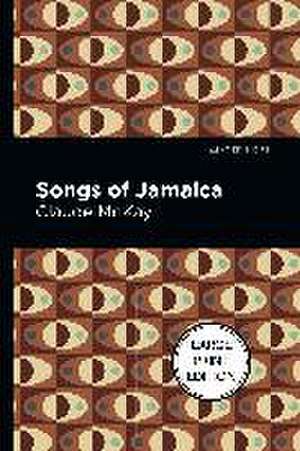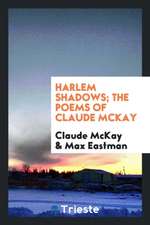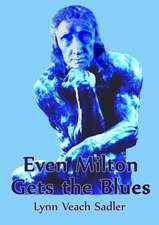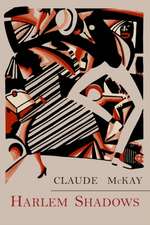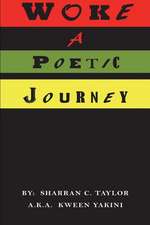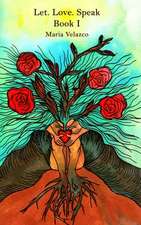Songs of Jamaica
Autor Claude Mckayen Limba Engleză Paperback – 30 aug 2022
| Toate formatele și edițiile | Preț | Express |
|---|---|---|
| Paperback (2) | 40.95 lei 3-5 săpt. | +5.96 lei 7-13 zile |
| Mint Editions – mai 2021 | 40.95 lei 3-5 săpt. | +5.96 lei 7-13 zile |
| Mint Editions – 30 aug 2022 | 141.29 lei 3-5 săpt. | |
| Hardback (1) | 68.58 lei 3-5 săpt. | +11.03 lei 7-13 zile |
| Mint Editions – 28 mai 2021 | 68.58 lei 3-5 săpt. | +11.03 lei 7-13 zile |
Preț: 141.29 lei
Nou
Puncte Express: 212
Preț estimativ în valută:
27.04€ • 28.91$ • 22.54£
27.04€ • 28.91$ • 22.54£
Carte disponibilă
Livrare economică 27 martie-10 aprilie
Preluare comenzi: 021 569.72.76
Specificații
ISBN-13: 9781513137025
ISBN-10: 1513137026
Pagini: 240
Dimensiuni: 152 x 229 x 14 mm
Greutate: 0.4 kg
Ediția:Text mare
Editura: Mint Editions
ISBN-10: 1513137026
Pagini: 240
Dimensiuni: 152 x 229 x 14 mm
Greutate: 0.4 kg
Ediția:Text mare
Editura: Mint Editions
Notă biografică
Claude McKay (1889-1948) was a Jamaican poet and novelist. Born in Sunny Ville, Jamaica, McKay was raised in a strict Baptist family alongside seven siblings. Sent to live with his brother Theo, a journalist, at the age of nine, McKay excelled in school while reading poetry in his free time. In 1912, he published his debut collection Songs of Jamaica, the first poems written in Jamaican Patois to appear in print. That same year, he moved to the United States to attend the Tuskegee Institute, though he eventually transferred to Kansas State University. Upon his arrival in the South, he was shocked by the racism and segregation experienced by Black Americans, which-combined with his reading of W. E. B. Du Bois' work-inspired him to write political poems and to explore the principles of socialism. He moved to New York in 1914 without completing his degree, turning his efforts to publishing poems in The Seven Arts and later The Liberator, where he would serve as co-executive editor from 1919 to 1922. Over the next decade, he would devote himself to communism and black radicalism, joining the Industrial Workers of the World, opposing the efforts of Marcus Garvey and the NAACP, and travelling to Britain and Russia to meet with communists and write articles for various leftist publications. McKay, a bisexual man, was also a major figure of the Harlem Renaissance, penning Harlem Shadows (1922), a successful collection of poems, and Home to Harlem (1928), an award-winning novel exploring Harlem's legendary nightlife.
